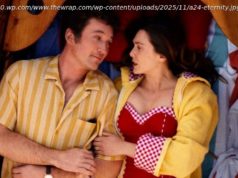Radha Chadha talks to ‘Scroll’ about ‘The Makers of Filmmakers – How Jagat Murari and FTII Changed Indian Cinema Forever’.
Some years after Jagat Murari died in 2007, his family started sorting out his personal effects at his home in Pune. There were cupboards and trunks stuffed with diaries, documents, reports, scripts and letters – collected over a lifetime of not just making documentaries but also working at such government organisations as the Film and Television Institute of India, the National Film Archive of India and the Directorate of Film Festivals.
Jagat Murari, who had been born in 1924, was a vital part of official Indian cinema policy. Trained as a physicist, with a second masters in cinema from the University of Southern California, Murari joined the Films Division in 1948, making several award-winning documentaries. Between 1961 and 1971, Murari was the principal of the Film and Television Institute of India in Pune.
Murari took over the year the FTII enrolled its first batch of students, “when it was a shaky start-up”, and “built it into a highly coveted film school, a magical place”, his daughter Radha Chadha writes in The Maker of Filmmakers – How Jagat Murari and FTII Changed Indian Cinema Forever (Penguin Random House).
“His alumni became the most significant actors, directors, producers, cinematographers, sound designers and editors of Bollywood and beyond,” Chadha adds. “They spearheaded the Indian New Wave cinema. They kick started regional language cinema. They helped usher television into the country. It was a hell of a story to tell. Yet he never did.”
Murari was also instrumental in setting up the National Film Archive of India and later, the Directorate of Film Festivals, Chadha writes. From making films to preserving them, shepherding students to overseeing the exhibition of their works at film festivals in India and abroad, Murari was for years at the fulcrum of the government’s involvement with cinema.
Chadha’s rigorously researched and engagingly written book is a biography as well as a history – a chronicle of how a recently independent country imagined cinema to be, and how people like Murari put a personal stamp on this vision. The Maker of Filmmakers focuses on the FTII years, recounting Murari’s efforts to shape up the curriculum based on his experiences and the far-reaching impact of his decision to invite established filmmakers as guest lecturers to make up for a shortfall in teaching staff.
“I could not tell his story without that of the Institute,” Chadha writes. “He made the Institute. The Institute made him. The dominant strain of that DNA – both Jagat’s and the Institute’s – was audacity.”
Chadha also recalls many obstacles faced by Murari, such as budget constraints, bureaucratic intransigence and student-led strikes. Murari’s bruising encounters with politicking didn’t just affect his wellbeing but also damaged the institute’s health, Chadha writes.
The Maker of Filmmakers is essential reading for anybody who wants to understand how the FTII built its reputation. Murari’s journey is emblematic of the hopes and disappointments of cosmopolitan Indians who sought a career in public service during the Nehruvian period.
Chadha has worked in advertising and brand consulting. She authored The Cult of The Luxury Brand: Inside Asia’s Love Affair with Luxury and has also been a columnist. In an interview, Chadha discusses the importance of Jagat Murari, her writing process, and the reason she regards her father as a “serial start-up person”. Here are edited excerpts.
How did The Maker of Filmmakers come about?
As a child, I knew my father had a lot of papers. When I started going through them, I realised that they were special, very precious.
He had these old Godrej cupboards, which were packed with stuff. He had trunks of material. He had kept his preparatory notes for the classes he took in direction at FTII. He had recorded many meetings as well. There was also correspondence.
He had started sorting out his papers. He meant to write his autobiography, and he had begun putting his thoughts together, but I guess he left it too late.






